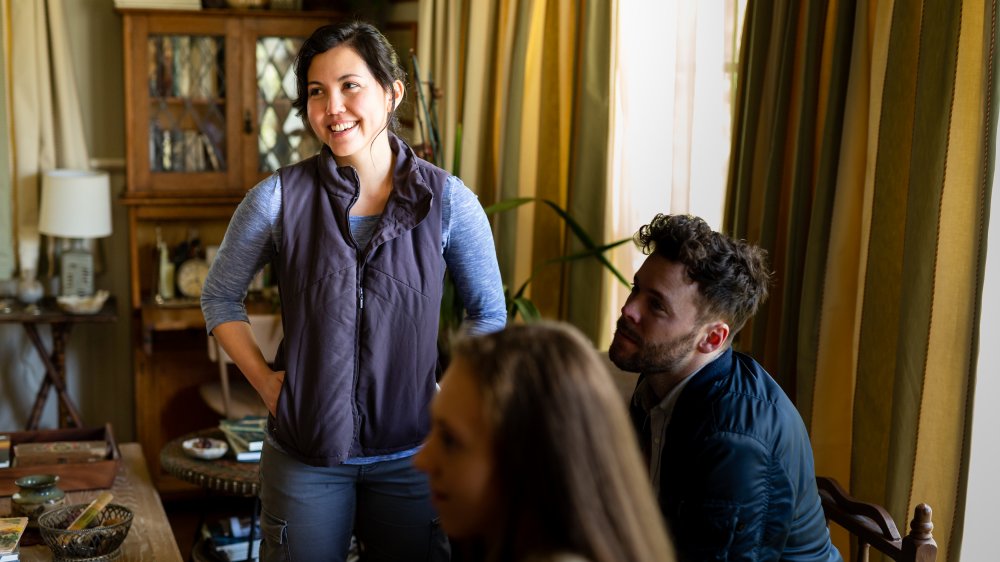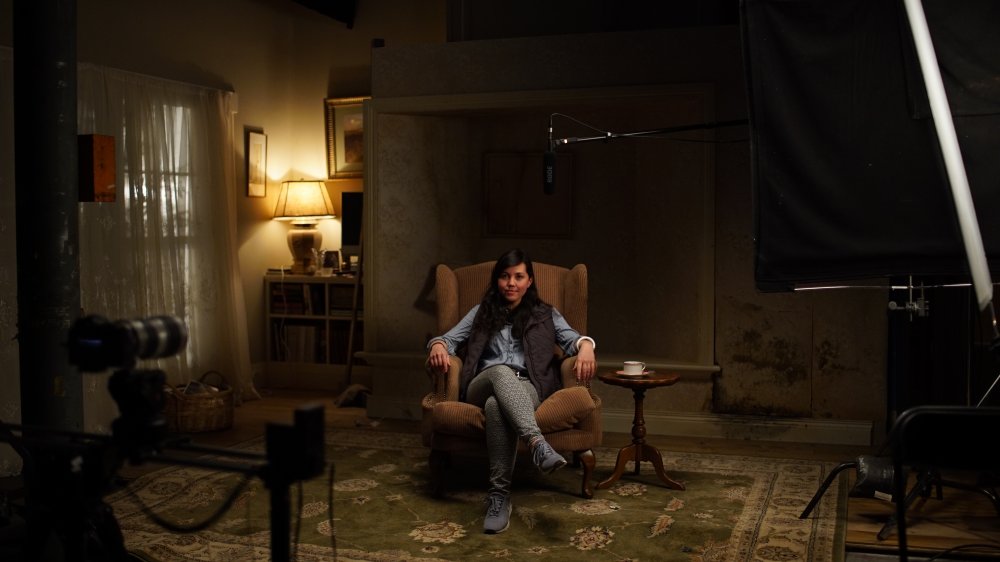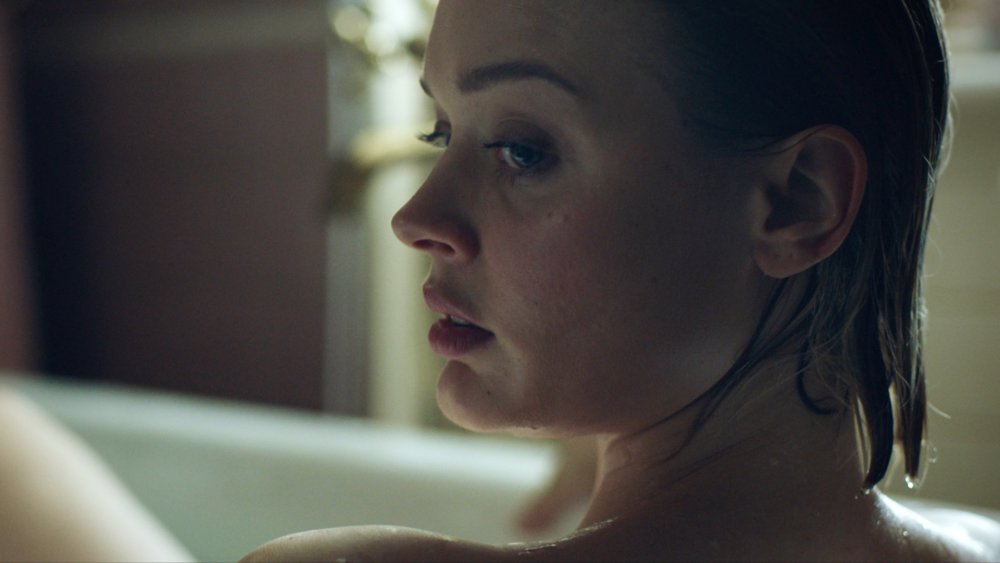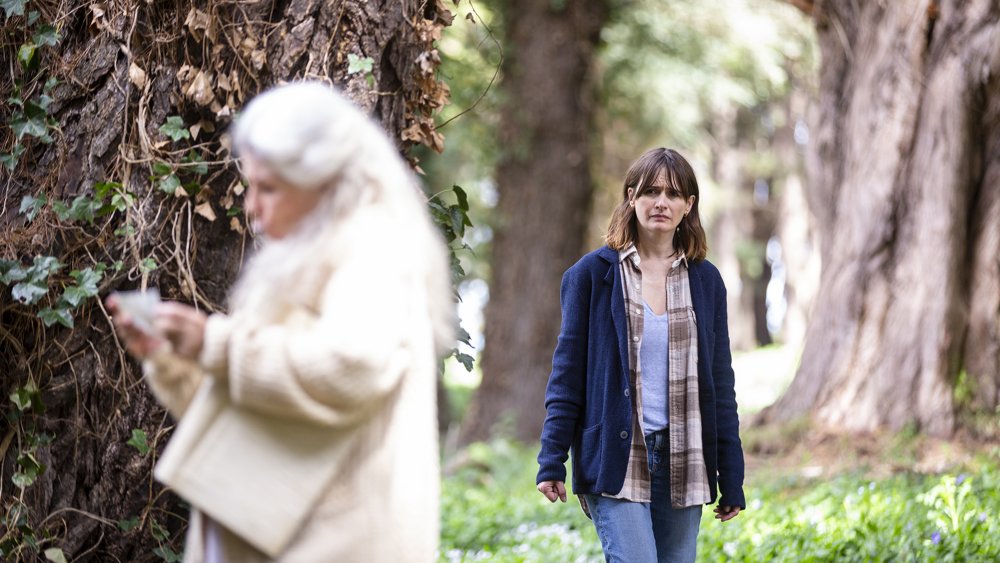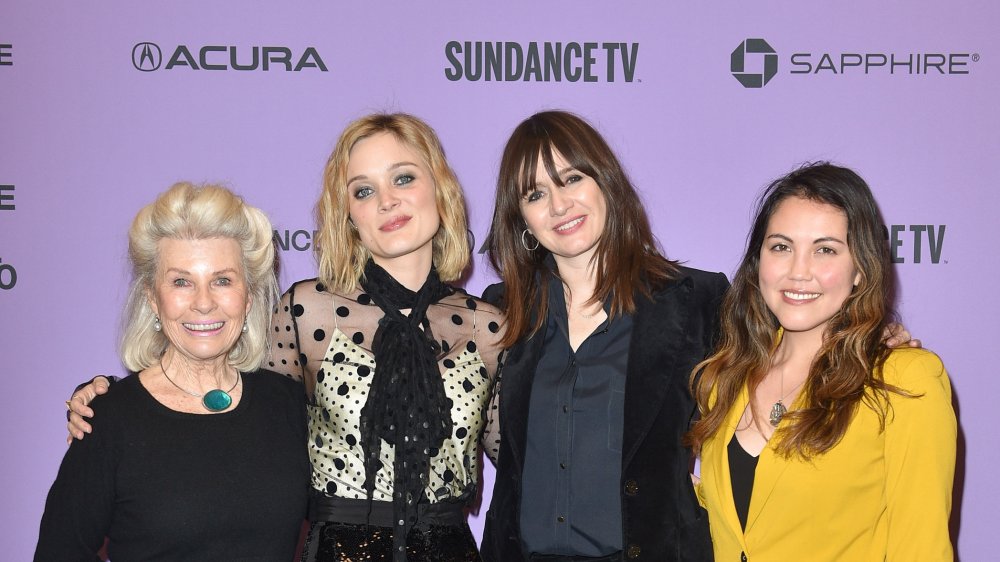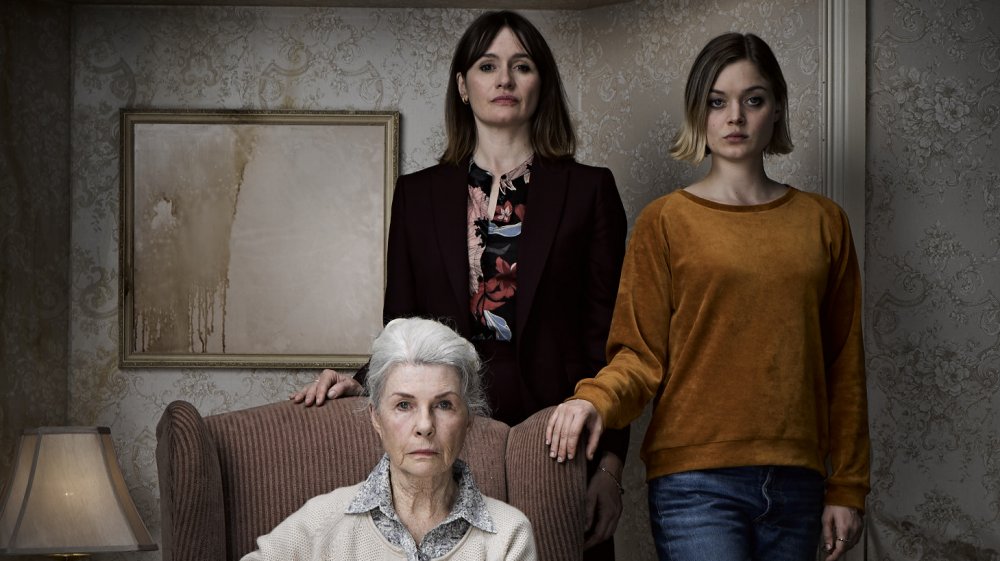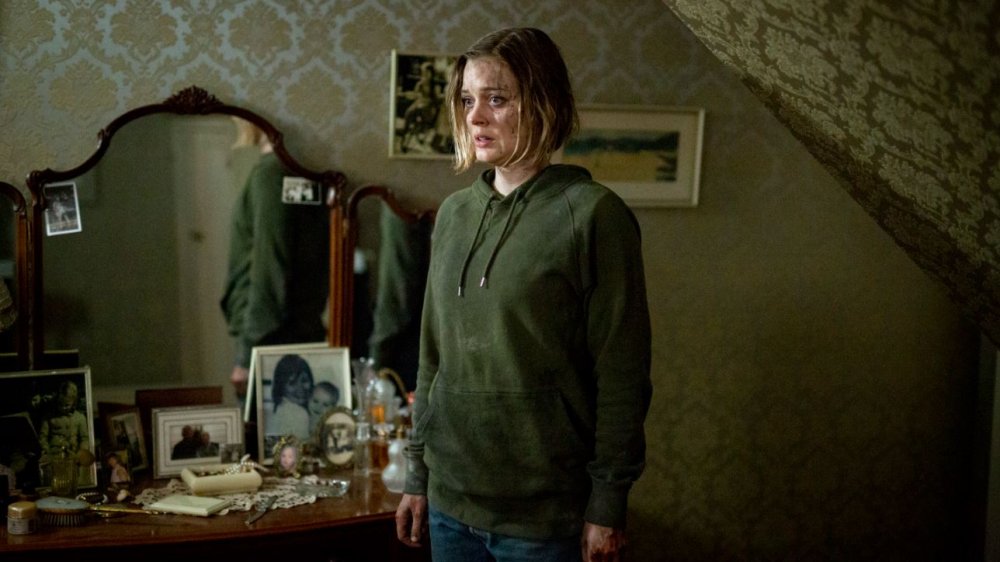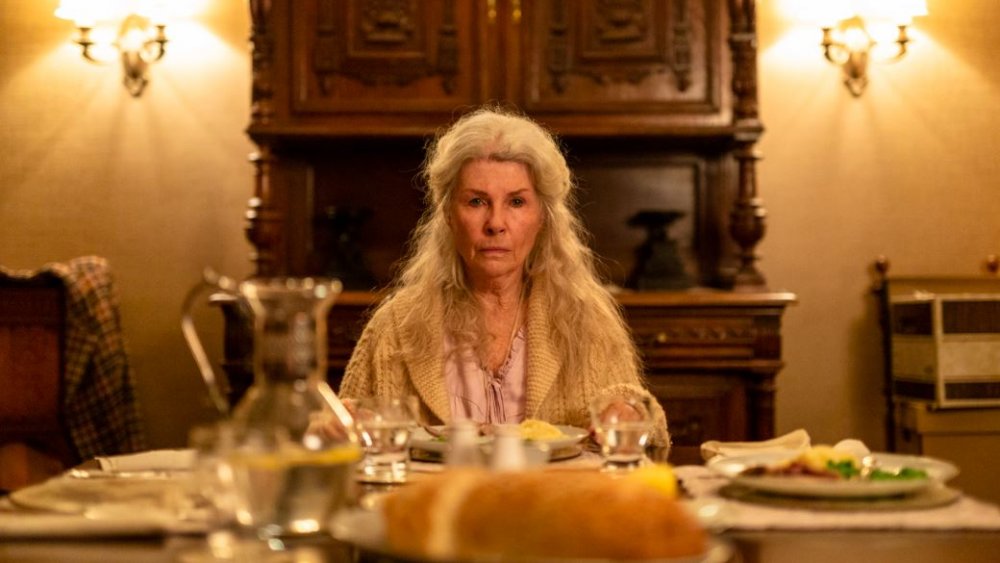Relic Director Natalie Erika James Talks Her New Horror Movie - Exclusive Interview
Horror hit Relic has been making waves. The story of three women haunted by the physical manifestation of dementia in their family home, it's a
film almost custom made for watching in the intimate setting of your own home. It's the debut feature film from director and writer Natalie Erika James, who has roots in both Japan and Australia. It's inspired by her own experiences with her grandmother.
For a movie by a first-time director, Relic had some heft behind it. It counts Jake Gyllenhaal and the Russo brothers as producers. It was shown at Sundance Film Festival. Emily Mortimer stars, alongside up and comer Bella Heathcote and Australian cinema veteran Robyn Nevin. And now it's distributed by IFC Films under their IFC Midnight banner. Such a strong pedigree has paid off: it's Certified Fresh on Rotten Tomatoes. Quite the career start.
In an exclusive interview with Looper, James gave us a look into her process. She explained what she likes about horror, what it's like showing a movie at Sundance, and what's next in her career.
What inspired the movie?
You say that this was inspired by visiting a grandmother who had Alzheimer's, and maybe feeling a little guilty about that. Could you expand on that?
Yes, my grandmother lives in Japan and she had had Alzheimer's for some time. And, yeah, the trip that I took to see her was in 2014. And it was notable to me because it was the first time she couldn't remember who I was. And so, I guess the feelings of guilt were stemming from not having gone to see her more often. And, I guess, almost a sense of missing the opportunity to spend all the time with her that I had. So that was kind of the origin. And because she also lived in this house that I had been really kind of terrified of as a kid, having spent most of my summers there. I think those two things kind of came together. And the idea of telling a story of our family getting through this, I guess, haunted house framework started. That's how the idea came about.
I noticed you tend to work in horror a lot. This is your first feature, but you've directed other things and they tend to fall in the horror category. What attracts you to horror?
I think horror's kind of this amazing genre to tell stories about fears and maybe I'm just really fascinated by the things that scare me. I was a massive scaredy cat as a kid, in fact. So who knows, maybe it's a way of kind of addressing those things head on. Somehow having like a cathartic experience or overcoming those fears in some way through the genre.
What influences Relic?
So when you make a horror movie about something like this and it's done, do you personally feel a sense of relief from it?
I think it's just a point of interest, probably. I don't know if relief is the right word, but it's a helpful way of processing, essentially. I think also, you know, as a filmmaker, you want to tell stories about the things you're passionate about. So if you draw it on your own personal experiences and fears, then that's of course... That's all very important to you. So it makes the task of storytelling and filmmaking all the more meaningful, I think.
What would you say your influences on this movie are? Either genres, directors, anything of that nature?
Yeah, I would say I was always really influenced by a lot of Asian horror growing up, but I think you can see some of the influences there from that, Gothic horror as well, just in the way that it is more of a slow burn horror, I suppose you could say, and that there's always a suspension of whether the supernatural is something real or it's just something rooted in real life. Or if the supernatural is... something supernatural is something rooted in real life essentially. That happens a lot in a lot of Gothic horror. And I suppose, tonally, I always pointed to J. Bayona's The Orphanage as a great kind of tonal reference, because it's a horror film that really does straddle the drama and the terror very well. And it has that kind of similar emotional gut punch at the end.
What it's like on the set of a horror movie
What exactly is it like being on set in a horror movie? Is it scary? Is it funny? Is it just another day at the office?
Yeah. I mean, it's not... I wouldn't say it's scary, because there's just so many people around, you know, it's different to what you see on camera. I would say at times it's very tough and emotionally taxing for the actors. And so I prefer a kind of laid back set where everyone's happy and joking around, but certainly for the days when the actors were required to go to some dark places, we tried to be respectful and keep a kind of low volume on set compared to usual for their sake.
What else can I tell you? I mean you do some ridiculous things when you direct horror to prompt reactions from actors. I remember in a particular scene smashing two books together to prompt a reaction, just to give it to the sense of timing for the actors. That can feel a little silly if you're looking at it from the outside, but I love that kind of stuff.
Sundance and working with Holywood talent
So you got to show this at Sundance, that's a big deal. What was that like?
Yeah, that was amazing. It almost felt like the day itself was like being at a wedding just in terms of everyone dressing up, then the sense of anticipation about this big event. And yeah, the logistics of how everyone's going to get to the venue and all that kind of thing. So, yeah, it was a massive deal for me. I was really nervous going into the actual screening, but afterwards it was incredible just to have people come up afterwards and share their own experiences of loved ones with Alzheimer's. And I think that was the best part, just seeing how much it has connected with people. But it was a whirlwind — I don't think I slept that night. I just kept going and doing press the next day, you know, I was just so wired.
So in addition to this, you have some big names attached to this producer, specifically the Russos and Jake Gyllenhaal. How involved were they?
Jake Gyllenhaal's company, Nine Stories, came on board in development. So we did a couple drafts of the film with them, they were great. They were also really helpful with the casting process as well. And then with AGBO which is the Russo production company, they came on board, I think we had the script down so they co-financed with Screen Australia and Film Victoria over here in Australia. And they were great. So they had a creative exec onset who was lovely and not at all like I'd imagined a creative exec on set would be like — I thought I was getting a minder or something, but it wasn't like that at, he was very supportive.
And then in post we actually went over to L.A. to do, I think it was about three weeks with AGBO and Joe Russo in particular was in the room from time to time. And yeah, it was really helpful with... I mean, he's got such an amazing grasp of story and the craft of filmmaking, so it was incredible to be able to collaborate in that way and share ideas and try and find solutions to things that weren't working, so it was great.
You also got some big names for this movie, especially Emily Mortimer. How did you go about swinging that?
Yeah, as I said, Nine Stories were really helpful with the casting. I think Emily had had a relationship or already knew Nine Stories quite well. And so I met her in New York with Riva Marker, who's one of the producers and yeah, she was just so wonderful and responded to the script so well. So they were kind of the introduction, I suppose.
A small cast
So the movie cast is very, very, very small. Was that a deliberate choice to keep it focused on those three characters and maybe one or two others? What was the thought behind that?
Yeah, definitely. Yeah. I mean, definitely always conceived as a bit of a three-hander, I would say. And probably there's a kind of my sense of claustrophobia as well, that you can achieve through such a small cast and it being largely set in one location as well. I think because it's so much about family too. It didn't feel like you needed people outside of the family kind of intruding on those dynamics, because it is so much about just the mother-daughter relationship and how different that can be between one generation to the next and the sense of inheritance, I guess, that comes from something like Alzheimer's. And I think inevitably when you have a grandparent going through something like that, you start to think about your parents' mortality and then by extension your own. So it kind of... it's terrifying in a number of ways, but yeah... I hope that answered your question.
That answered it wonderfully. So is there anybody you'd like to work with in the future? Do you have your eyes on somebody in particular?
Oh, actor-wise?
Yep. Actor-wise, producer-wise.
I don't know, I really couldn't say. I have such a massive list of actors I'd love to work with. I don't know. It's a weird one. I don't know, someone like Willem Dafoe or Tessa Thompson or something like that, other than just the top two that just came to my head. Like I should have a stock answer for that, but yeah. I think they're both amazing.
Small town horror
The movie takes place in Victoria, an Australian state. It takes place about an hour and a half outside of the nearest city. Was there a deliberate purpose behind putting it in a small town?
I think, yeah. I mean, probably the origin came from the fact that my grandmother lives in rural Japan as well. And some of the things that I noticed on that trip I mentioned was also the declining state of the town as well. A lot of the shops that had been really thriving when I was a kid and would go there during my summer, and it just felt like the town had really stagnated and all the business had kind of gone to the bigger cities, all the young people had kind of gravitated toward the big city and left the towns behind.
So I really wanted there to be a step of that in this kind of small-town atmosphere as well, and have Edna's experience kind of reflected in the town that she lives in. And yeah, I guess a sense of the town being left behind, just as Edna had been neglected in a way. So that was, I think the reasoning behind it.
What Natalie Erika James is doing next
So we mentioned Japan quite a bit here. Do you have any designs on doing anything in Japan, given that they're huge horror fans over there?
Yeah. I'm actually writing a Japanese folk horror at the moment, which we're hoping to shoot... if not in Japan, with Japanese actors at least. So that's really exciting. And I lived in Japan until I was six years old. My mom's Japanese, so it's a big part of my upbringing and who I am. And I would absolutely love to work there.
What have you got going forward? What do you have in the works? What are you looking forward to doing?
I'm writing a few projects. They're all kind of in the horror subgenres. And as I mentioned, the one that done along with Japanese folk horror, I'm working with the same Aussie producers and the same co-writer that I did Relic with. I'm so super excited about that. I've also got a demon horror and another body horror part in the works as well, and I'm just reading a lot and, yeah, trying to find cool stuff to work on.
